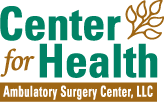309.683.4490
8800 N. Route 91, Peoria, IL 61615
Pain, Incision Care, Miscellaneous Information
Pain. Most surgeries result in pain, but the goal is to make your pain tolerable. Nearly all pain can be controlled with proper medications. Do not hesitate to request pain medication if your pain is not tolerable. Most patients will receive instructions and / or prescriptions for pain medication after surgery. If you have pain not relieved by medication, call your doctor. Do not take sedatives, antihistamines, or sleeping pills for 24 hours without direct instructions from your doctor.
Walking and Using Stairs. Unless indicated after an operation, you are encouraged to walk and may use stairs after surgery. Walking helps reduce the risk of developing blood clots to the legs and pulmonary emboli (dangerous blood clots in the lung). Orthopedic patients may have different guidelines.
Wound Care. All wounds should be covered if they are draining. To help prevent infection and promote healing, your surgeon will give specific instructions that the nurse will review with you before discharge.
You will be given instructions about how to care for your incision.
Steri-Strips™. These strips (sometimes called butterfly tapes) will be left on until they fall off or your surgeon removes them. Most patients with Steri-Strips™ may take a shower, but it is important not to immerse the wound in a tub or expose the wound to water for long durations.
Staples. Incisions with staples should be covered with a dressing if there is drainage, otherwise the wound may be open to air. Some patients prefer to place a dressing over the incision to keep their clothing from catching on the staples.
Antibiotic Ointment. The use of antibiotic ointments is discouraged immediately after surgery. Once the wound has healed, Neosporin® ointment may be used to improve the cosmetic results of the scar.
Resuming Maintenance (Regular) Medications. Please discuss this with your Primary Care Physician.
Constipation. Surgery often results in constipation, even in patients who are regular. The combination of anesthesia, decreased activity and narcotic pain medication can produce severe constipation. A person who has an incision to the abdomen may sustain pain while straining to have a bowel movement and can place undue stress on the sutures and tissues. It is encouraged that you increase the fiber in your diet and drink plenty of water. Except for surgery on the bowel, it may be recommended that you take a mild laxative or stool softener after surgery to prevent this complication.
Returning to Work. Often patients expect to return to work in a predetermined set of days after their operation. Returning to work depends on your ability to recover so you can resume your work duties as well as the decision by your employer to allow you to return to work.
Keep in mind that each patient heals at a different rate after undergoing surgery. In addition, people have different jobs. For example, someone who has had major surgery might be able to resume their employment if they have a flexible desk job. But someone with the same operation who performs strenuous activity on the job, may need to be off work for several weeks.
In addition, employers vary in the rules in which they will allow someone to return to work. Some employers expect an individual to return to light duty after certain operations; other employers insist that their staff must be able to return to full activities before they can resume their job.
The decision to return to work must be individualized to each person. It combines the judgment of the surgeon, patient and employer. You should discuss this with your surgeon before your surgery and at follow-up appointments based on your progress.
Driving. For your safety and the safety of others, you will not be allowed to leave the Surgery Center without a responsible person to drive you home.
• You should not drive for 24 hours following surgery.
• You should not drive while taking narcotic pain medications.
• You should not drive if you have restrictions on the use of your arms or legs such as arm sling or leg brace that would impair your ability to respond quickly.
• You should discuss with your surgeon if in doubt.
